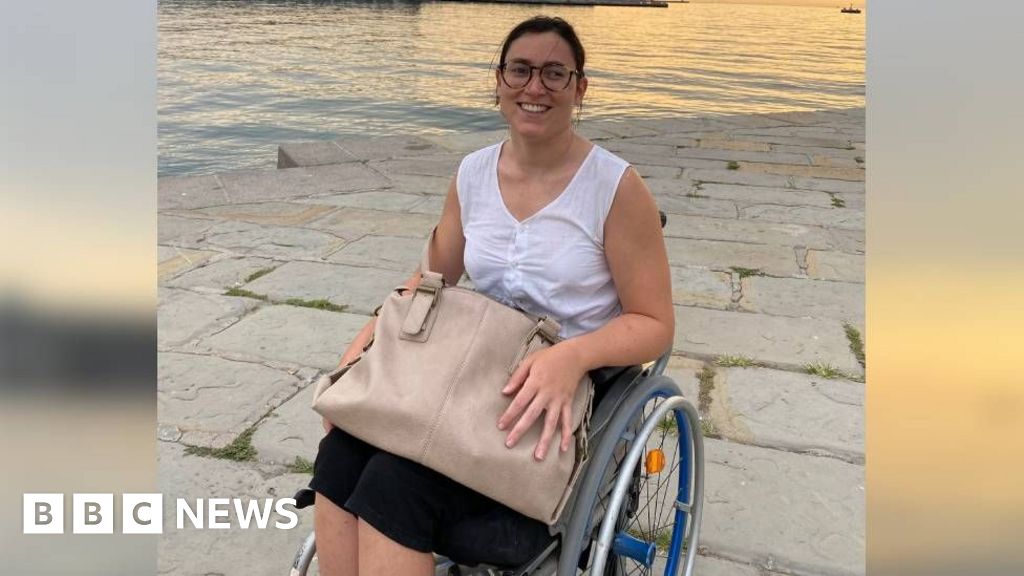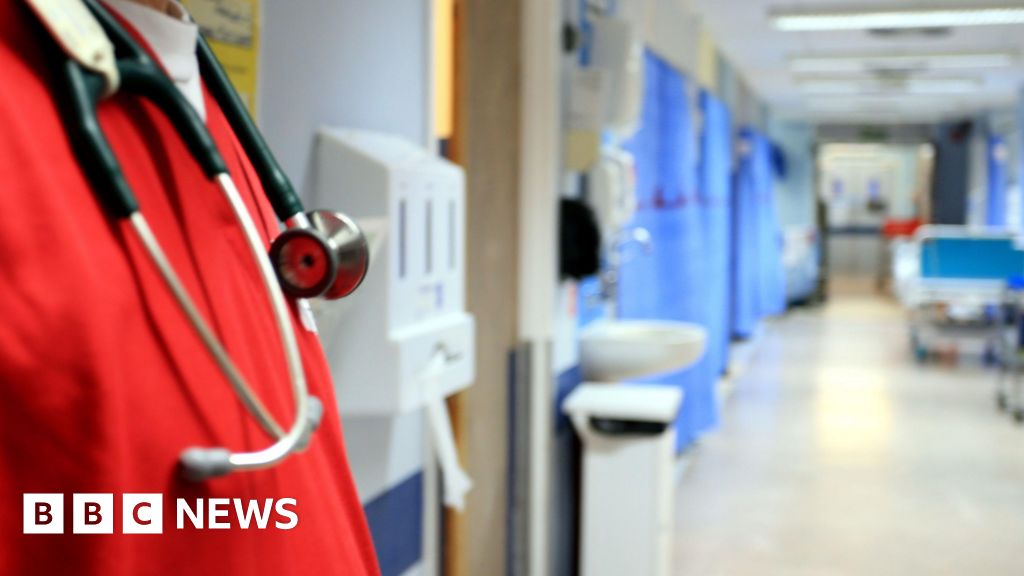Hospitals in England are being hit by a "tidal wave" of flu and other winter viruses, NHS bosses say.
Data released by NHS England showed there were an average of nearly 1,900 beds occupied by flu patients last week – up 70% on the week before.
That is more than three times higher than this time last year, with doctors warning that they are struggling to contain the spread of the virus within hospitals as well as seeing more patients being admitted.
Covid, RSV and the vomiting bug Norovirus are also continuing to cause problems.
NHS England medical director Prof Sir Stephen Powis said: "The tidal wave of flu cases and other seasonal viruses hitting hospitals is really concerning for patients and for the NHS – the figures are adding to our 'quad-demic' worries.
"While the NHS has plans in place to manage additional demand over the busy winter period, with one week left to book your vaccine, I cannot stress enough the importance of getting booked in to protect yourself against serious illness and to avoid 'festive flu.'"
Dr Adrian Boyle, of the Royal College of Emergency Medicine, said the flu vaccination rates were disappointing this year, adding there was now a lot of spread happening within hospitals.
He said the pressures on A&E and the rest of the emergency system were worst than last winter - and could be heading to the levels seen in 2022-23, which is regarded as one of the worst winters in generation for delays and waits.
Combined, the winter viruses are taking up around 5% of beds, but Dr Boyle said that was enough to cause "real problems" because hospitals were already so busy going into winter with around 95% of beds full, leaving little capacity.
"It does not take much of an increase. It's a real struggle at the moment. We are seeing long waits with many hospitals having the equivalent of a ward of patients backed up in A&E because there are no beds available."
Figures for November show 28% of patients waited longer than the target time of four hours in A&E.
At a meeting with health leaders earlier this week, Health Secretary Wes Streeting told hospitals to prioritise safety and the very longest waits instead of worrying about the target.
But there was more positive news regarding the hospital waiting list with figures for October showing the NHS saw more than 2.2 million patients starting treatment, the highest on record and after a period when hospitals were struggling to increase productivity.
Streeting said a combination of ending the strikes in the NHS and ramping up the number of appointments available had started to make a difference with signs the waiting list - currently at over 7.5 million - was starting to fall.
"There's a long way to go, but we will get patients seen on time again."
 (1).png)
 2 weeks ago
6
2 weeks ago
6













